- Programme
- Exhibitors & supporting partners
- Practical Information
- News
- Past conferences
-
#EENA 2023#EENA 2023
-
#EENA 2022#EENA 2022
-
#EENA 2021#EENA 2021
-
#EENA 2019#EENA 2019
-
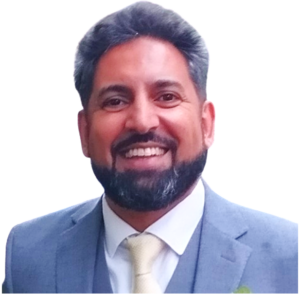
Adlan Hussain is a seasoned commercial enterprise professional with a remarkable track record spanning over two decades in the high-technology sector. His expertise lies in spearheading large-scale, cutting-edge projects focused on mission-critical security, contributing significantly to public safety worldwide.
Having played a pivotal role in some of the most significant security initiatives globally, Adlan has collaborated with leading organizations in Critical Infrastructure Protection, Federal Government, Law Enforcement, Corporate Security, and Safe City programs. His work directly influences the enhancement of public safety measures, safeguarding vital assets and infrastructure.
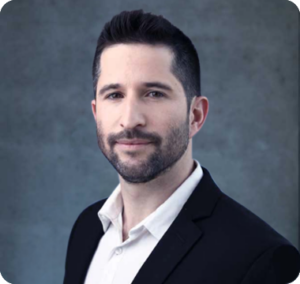
Alex Dizengof is the Chief Technology Officer and Co-Founder of Carbyne, a leading cloud-native emergency call-handling provider at the forefront of revolutionizing emergency response systems. With over 15 years of experience in technology innovation and development, Alex has established himself as a prominent figure in the industry.
At Carbyne, Alex’s visionary leadership has been instrumental in the development of an advanced emergency response platform. This platform integrates cutting-edge technologies to empower first responders and ultimately save lives. His expertise and dedication to leveraging technology for the greater good have positioned Carbyne as a leader in the field of emergency services.
Alex’s contributions to the technology sector have earned him recognition from esteemed publications including Forbes, TechCrunch, and VentureBeat. He is widely regarded as a thought leader in the industry, regularly sharing his insights and expertise on emerging trends and best practices. With over 10 patents to his name, his work represents a significant contribution to the advancement of technology in the emergency response domain.

I am board certified clinical and military psychologist and also qualified as a Cognitive Behavioural Therapist. As a psychologist at the Special Telecommunication Service, I have over five years of experience in providing mental health care and support to 112 call-takers. My work focuses on clinical assessment and counseling, therapeutic services, as well as training and psychoeducational programs for 112 call-takers.


I work at the Special Telecommunications Service Romania since 2016 as a 112 call-taker. In addition to that, I am also an operational analysis and monitoring officer. I have been involved from the early stages in the NG 112 project and the main activities that I currently carry out are testing the features of the new system and training 112 call-takers and dispatchers on using the NG 112 platforms.
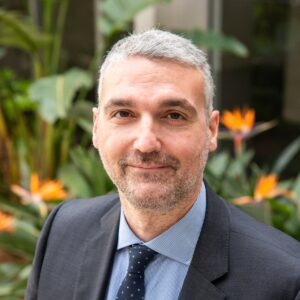
Alexis is working as Project Manager at EENA since he joined the team in 2015. He is responsible for planning and coordinating EENA’s participation in different projects. Alexis is involved in projects about social media for emergency management, emergency caller location, eCall and lately piloting new technologies in PSAPs. In the past, Alexis has worked in the ICT sector, since 1999 and has been involved in management, R&D and consulting activities. He is a Greek national, and he holds a Master of Engineering (MEng) from the University of Aberdeen, in Scotland. He has lived and worked in the United Kingdom and speaks fluent English.

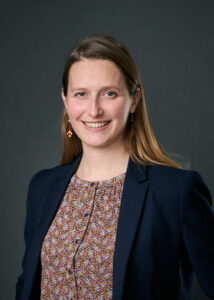
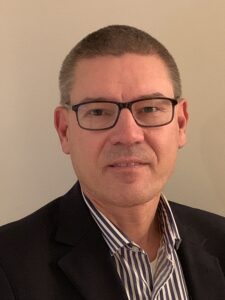
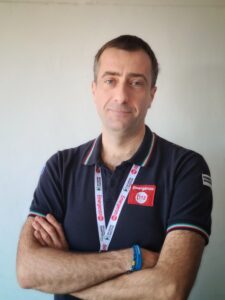
I’m in charge of the 112 Service – Emergency Response for Marche and Umbria regions, in the center of Italy, since December 2020.
Since August 2023 I’m Director of the Integrated System of Emergency Response, a Department of Regional Health Agency of Marche, Italy, dealing with Emergency Medical Response System, HEMS, Defibrillator Networks, etc…
Before “switching to the desk” in 2020, I’ve been working for 18 years in the ambulances of the Emergency Medical System of Marche Region.
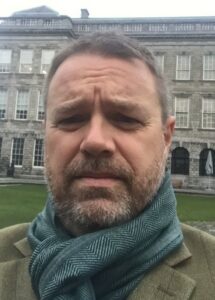
Career CIO in industry then British Transport Police, Deputy CIO of London Metropolitan Police, Chief Advisor Abu Dhabi Police, CIO UK Government Vetting Agency, CIO London Ambulance Service and then Global advisor on Public Safety matters with Huawei. For five years Andrew chaired the GIS Board for UK Policing.
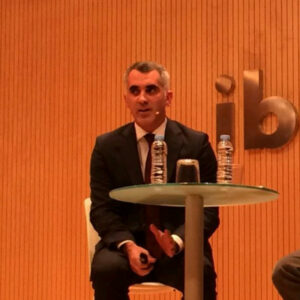

April is an accomplished professional who currently holds the position of Vice President and Chief of 9-1-1 Operations for NENA: The 9-1-1 Association. She has extensive experience and expertise in 9-1-1 Operations and is NENA’s subject matter expert in that area. April’s primary responsibilities include educating, advising, and advocating for 9-1-1 and Emergency Communication Center operations on behalf of NENA. April supports NENA’s development group in establishing operational standards and best practices for 9-1-1 operations. She actively participates in various industry associations and governmental organizations, working groups, committees, and taskforces to enhance the effectiveness and efficiency of 9-1-1 systems across the globe. She seeks innovative solutions to enhance emergency response capabilities and is dedicated to improving the 9-1-1 profession.
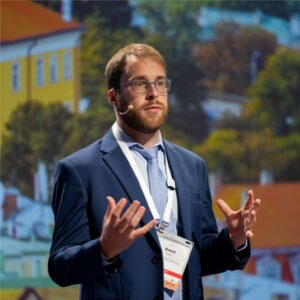
Benoît joined the team in September 2015 and is in charge of EENA’s public affairs work. He is EENA’s liaison with the institutions of the European Union as well as other stakeholders, and works on increasing the awareness of the European emergency number 112 in Europe.
Benoit is also working on dedicated EENA programmes, including leading the file of emergency location and Advanced Mobile Location. Benoît has graduated in European Affairs from the College of Europe in Bruges; before that, he studied in Sciences Po Lille. He also spent one year abroad in Gothenburg (Sweden) as an erasmus student. Benoît is a Belgian national and speaks French, English, Spanish and Swedish.
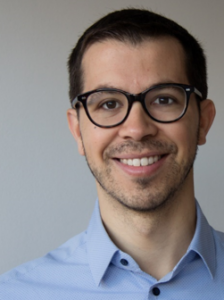
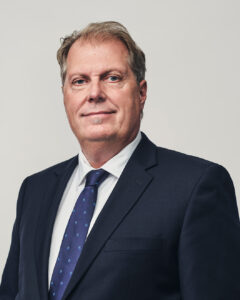
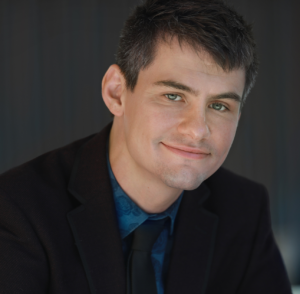
Brandon Abley is the Chief Technology Officer for NENA: The 9-1-1 Association. In this capacity he works with a community of experts in the development of NENA technical standards and advises, educates and advocates on technical issues for the emergency calling community.

Brooks Shannon is Esri’s Director of Emergency Communications Solutions. He has worked for over 20 years in public safety, bringing a geographic approach to solving public safetey’s most urgent and complex problems. Brooks supports the global emergency communications market, which encompasses emergency call-taking, dispatching appropriate first responders, and routing emergency resources for the more than 240 million emergency calls that happen in the U.S. alone each year, in addition to the countless emergency calls that occur each year globally.
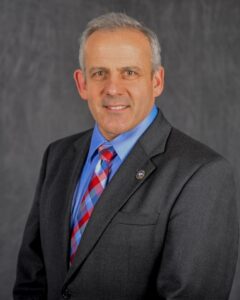
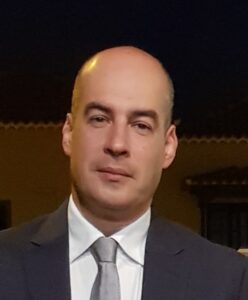
Since 2009 he belongs to GESTION DE SERVICIOS PARA LA SALUD Y SEGURIDAD EN CANARIAS SA, a public company that manages the 1-1-2 service of the Canary Islands and the Urgent and Non Urgent Health Transport. He is currently the IT manager of this service, also participating in several forums related to the evolution of the emergency services and the management of Cybersecurity. He has also collaborated with EENA 112 as a member of the EENA Tech & Ops Committee.
He holds a degree in Mathematics, is accredited as a Security Manager and has completed several University Experts related to Information Security and Digital Transformation of Public Administration. He has also collaborated with Canarian universities as a professor teaching in the Master of Cybersecurity and Data Intelligence of the ULL, among other areas of technology. He is currently developing a doctoral thesis at this university on the application of Artificial Intelligence in cybersecurity.
He began his professional career at CiberCentro, an IT management agency of the Canary Islands Government. From there he developed different activities in the field of Information Systems, being responsible for the Operations, Quality and Project Management departments.
For the past 22 years I have worked in emergency services, , the last 17 years at the Copenhagen PSAP, first as operator and later as team leader. Since 1 January 2024, I have acted as technical specialist in collaboration with our IT department.
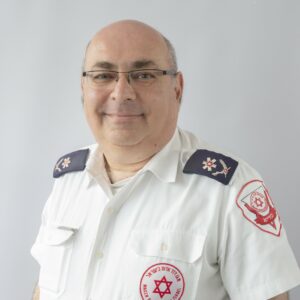
Disaster Management Coordinator of Magen David Adom in Israel (Magen David Adom – MDA, is the national Emergency Medical Services – EMS provider for Israel, National Blood Bank and National Society member of the International Red Cross Movement).
Mr. Rafalowski holds a Master’s degree in Public Policy and Administration from Tel-Aviv University.
Work responsibilities include: MDA participation in EU R&D funded projects, international cooperation projects, deployment of MDA personnel as part of international response to disasters, and preparedness to large scale disasters and coordination with the International Red Cross Movement. Serves as an active team member in MDA ambulances and dispatch centers, as well as a national duty operations officer, then responsible of monitoring MDA daily as well as emergency operations.
In charge of several international projects, dealing with capacity building of ambulance services around the globe.
Since the beginning of COVID 19 pandemic, serves as a member of the Israeli National Emergency Health Operations center, representing MDA.
Professional highlights: Before assuming the position of DM coordinator, MDA served as a senior First Aid and Emergency Medicine Instructor (1988-1992), then as the Emergency Management and CBRN (Chemical, Biological, Radiological – Nuclear) preparedness officer of MDA, a position he held until 2010. During this period served as member of several national steering committees in Israel and was in charge of MDA preparedness and response to large scale emergencies.
Expert in Societal Security served as evaluator for FP7 EC R&D program, and member of the Advisory Board to DG Industry and Enterprise. Coordinated the participation of MDA in 7 large R&D projects funded by the EC.
Was part of the team who developed MDA Mass Casualty Incident (MCI) protocol and reviewed it several times, as well was involved in the response and evaluation of many emergency operations. As member of the operations division, played a key role in development of the 1st version of MDA C4I system and future developments as well as different training programs for staff and volunteers.
Contributor to the WHO – EMT RED BOOK (A guidance document for Medical teams responding to health emergencies in armed conflicts and other insecure environments).
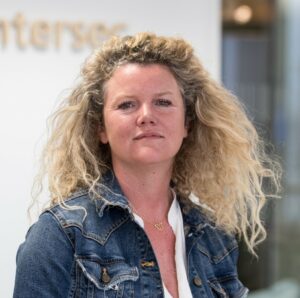
An experienced telecoms and data professional, Charlotte joined Intersec in 2010 after working for a few years for a major mobile network operator. She headed up corporate marketing before opening the West African office in Ivory Coast. Back at headquarters, Charlotte was in charge of innovations for the public sector such as location intelligence for smart cities. In 2018, she joined Oracle as a big data & analytics expert for the public sector and participated in intrapreneurial projects in data mobility. In 2022, Charlotte returns to Intersec to lead the company’s public safety value proposition.

I have been working in national and international roles within emergency services for the past 17 years, heading up departments in both business and IT. For the past 6 years I have been responsible for IT, Information Security, BI & Analysis and administrative departments within Greater Copenhagen Fire Department. Main focus and responsibility for ensuring a digital transformation and optimization of the organization.
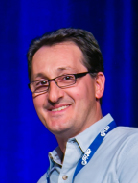
Mr. Militeau is the Head of Product, Global Emergency Services with more than 25 years of professional experience in the telecommunications, software and public safety industries. In this role, Mr. Militeau has been instrumental in the development of NG9-1-1 standards, technologies, products/services for the Public Safety industry, including products/ services for the UCaaS, CCaaS and CPaaS markets. Mr. Militeau led numerous activities including product management, systems engineering, and solutions architecture. Mr. Militeau joined Bandwidth in 2020 as a Product Leader, prior to Bandwidth he was with Intrado.
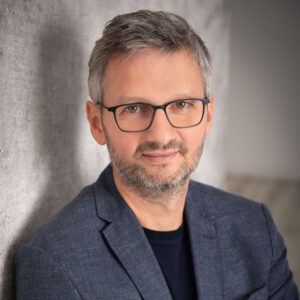
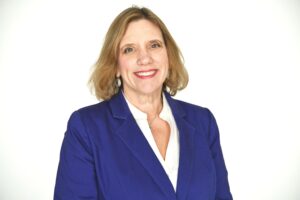

Christy Williams, ENP
[email protected]
Director of 9-1-1 for North Central Texas Emergency Communications District
Christy Williams is an accomplished professional in the field of emergency communications, holding the position of Director of 9-1-1 for the North Central Texas Emergency Communications District (NCT9-1-1). In her role, she oversees the administrative agency responsible for 9-1-1 services in fourteen counties, serving over 40 Public Safety Answering Points (PSAPs) in the Dallas/Ft. Worth region. With a career spanning over three decades, Christy’s contributions have been instrumental in driving positive change and innovation in the industry.
Notably, Christy served as the President of the National Emergency Number Association (NENA) from 2014 to 2016, highlighting her exceptional leadership and dedication to the field. Her involvement extended to various levels, including the Texas NENA Chapter Board President and the presidency of the 9-1-1 Public Educators of Texas. She played pivotal roles at the national level, chairing the NENA Public Education Committee for seven years and contributing for 13 years to the NENA Educational Advisory Board.
Recognitions and awards underscore Christy’s contributions. She received the esteemed Laverne Hogan Award in 2011 for her significant impact in the 9-1-1 community and the International Wireless Communications Expo (IWCE) Critical Communications Leader of the Year Award in 2020. Under her leadership, the NCT9-1-1 program received the Technology Leadership Award from APCO and the ESRI Special Achievement in GIS Award in 2014, as well as the AWS State and Local Government Champion award in 2023, further underscoring their commitment to innovation and outstanding service in the field of emergency communications. These recognitions solidify NCT9-1-1’s position as a trailblazer in embracing cutting-edge technologies and approaches to enhance the safety and well-being of the community.
In collaboration with colleagues across the country, Christy initiated the Early Adopter Summit (EAS) in 2017. This platform, which convenes annually, brings together trailblazers and innovative partners in public safety to push boundaries and foster transformation in the 9-1-1 industry.
Christy has developed programs, campaigns, articles, courses, and training material, and has shared her insights at numerous local, state, and international conferences. Passionate about the industry, her work with NCT9-1-1 exemplifies her dedication to inspiring change and elevating 9-1-1 services for both citizens and telecommunicators.
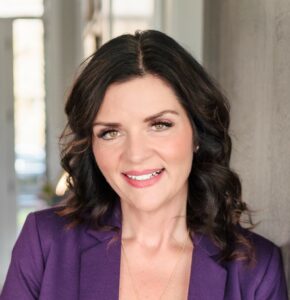
Public safety leader, international consultant, educator & speaker with 28 years’ industry experience as a 9-1-1 Dispatcher, flight & ground Paramedic, and Deputy Chief leading teams in 9-1-1, Fire, EMS, and Police. She’s the NENA Canada West President, Past President of APCO Canada, and former Director with Alberta E9-1-1 Advisory Association.
Cindy has a master’s degree in leadership, is a certified EQi practitioner, trauma and resilience educator, and is completing Conscious EFT™ practitioner certification.
As a disruptor, she’s here to change the game in our industry and for the people working within it. She’s a fierce advocate for the “first, first responders”, mental health, leadership, and much needed systemic change. As CEO of Cindy Sparrow International, she delivers consulting, education, and facilitates transformation for leaders and their teams so they can achieve massive success and build resilience in the face of constant change, stress, and trauma.
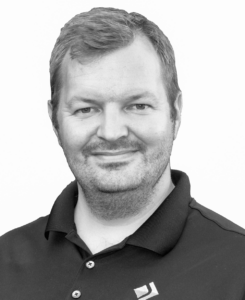
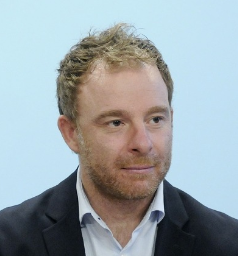

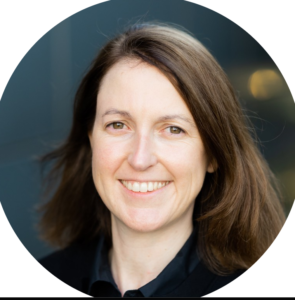
Cristina has been the Technical Director at the European Emergency Numbers Association (EENA) for over ten years, where her work has focused on improving emergency telecommunications and crisis response. Her role includes contributing to the strategic planning and execution within EENA. She coordinates the technical and emergency services’ operations activities of the association.
In addition to her position at EENA, Cristina chairs the Technical Committee on Emergency Telecommunications (EMTEL) at the European Telecommunications Standards Institute (ETSI). Her work here is centered on the development and standardisation of telecommunications solutions to ensure they are interoperable, resilient, and efficient during emergencies.
Before these roles, Cristina was the IT Manager at Madrid’s 112 Center. The experience provided her with a solid foundation in emergency telecommunications and crisis management, which she has built upon in her subsequent roles.
Cristina’s contributions are driven by a commitment to improving emergency response through strategic oversight, collaboration, and knowledge sharing.
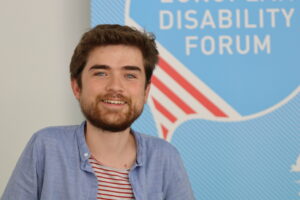
Daniel Casas is Accessibility Policy Officer at the European Disability Forum (EDF), the umbrella organisation that defends the interests of over 100 million persons with disabilities in the EU. His work at EDF focuses on accessibility and freedom of movement, covering areas and policies such as transport, the built environment, accessibility of goods and services, ICT and new technologies and standardisation. Before that, he worked for three years as Policy Officer at the Delegation of the Government of Catalonia to the EU. Daniel holds a bachelor’s degree in Philosophy, Politics and Economics (Spain) and a master’s degree in European Integration (Belgium).
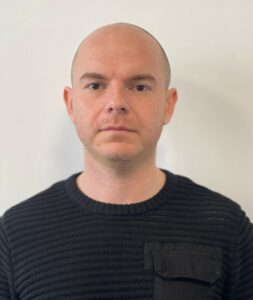

I work at the Special Telecommunications Service Romania since 2021. I have been trained as a 112 call-taker, acted as an operational analysis officer and I am currently coordinating the 112 supervisors at national level. I am also involved in testing the features of the NG 112 system and training 112 call-takers and dispatchers on using the new platforms.

David is co-founder of the Heartrunner system. He is dedicated to increase survival in OHCA through CPR and AED use. David has a background as a nurse in cardiology and holds a PhD from Karolinska Institutet, he was involved in setting up the national Swedish AED register and are a member of Swedens CPR council.
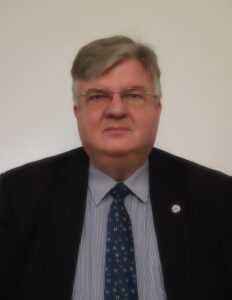
Demetri is the Director of Medical Services of the National Centre of Emergency Care (EKAB) in Greece and Past President of the World Association of Disaster and Emergency Medicine (WADEM). He has been repeatedly honoured by several governments for his medical interventions during disasters, such as in Armenia in 1988, Afghanistan in 1990 & Turkey in 1999.
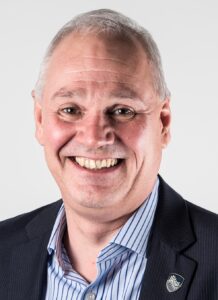
Duncan Swan is the Chief Operating Officer at British APCO, a part time role he took up in March 2022 following his retirement as a Director with UK IT Advisory firm, Mason Advisory. British APCO is leading several initiatives in the UK including around NextGen999/112 and MAIT – Multi Agency Incident Transfer.
Duncan has nearly 40 years’ experience of public safety technology gained through initially working for Philips Communication Systems and, from 1995, delivering consultancy firstly for Mason Communications and then finally for Mason Advisory. Duncan has provided strategic and technical input on assignments delivering mobile communications, critical control room solutions, and associated technologies for public safety organisations in the UK and further afield, and up until his departure leading the Mason Advisory team delivering professional technical services to the UK Home Office Emergency Services Mobile Communications Programme.

Emily Hough is founder and Editor Emeritus with the Crisis Response Journal. She works both in print and online, specialising in international publishing, events and conferences, mainly in the fields of disaster and crisis management. Emily has founded and organised high-level conferences and seminars in the resilience and response field, identifying global trends and anticipating future hazard scenarios. She is also a member of EENA’s board.

Erica began her professional journey in the banking and finance sector, eventually specialising as an IT product expert within a financial planning software company. In 2016, driven by a desire to make a more direct impact on society, she transitioned to part-time roles as a funeral leader and a 112-call taker. Leveraging her IT background and newfound expertise in emergency response processes, Erica worked on the development of a new 112-platform, marking her return to the IT sector. By 2018, she assumed the role of Information Analyst and Advisor for the Police, Ambulance, Fire Department, and Military Police at the National Public Safety Answering Point (PSAP). She oversees all technical aspects of PSAP operations, including the 112 emergency call answering service.
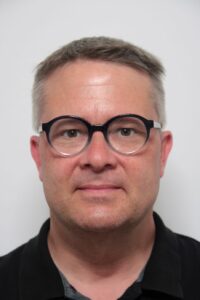
Medical director Lausanne medical dispatch (Switzerland)
Senior physician Emergency department, Lausanne University Hospital, University of Lausanne, Switzerland.
In charge of developpement and quality control within the dispatch center


Journalist in Comunidad Autonoma de Murcia. Since 2003 I have been responding to requests for information on emergencies from the media. Prepare statements, press conferences and responsible for messages and content on the social media profiles of 112 Region of Murcia. Coordinating a 5 people team.

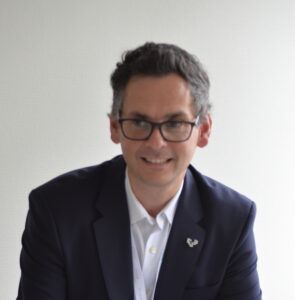
Prof. Fidel Liberal is a well-recognized expert in Mission Critical communications.
He works as professor and principal investigator of the NQAS research group in the University of the Basque Country (UPV/EHU) where he leads different emergency and mission critical communications and beyond 5G related R&D projects. Among others, he is the coordinator of the Mission Critical Open Platform (MCOP) www.mcopenplatform.org and leads the MCS TaaSting www.mcstaasting.com project, aimed at providing flexible testing as a service mechanisms for MCS certification.
As a result of his intense dissemination and advocacy activity in Mission Critical communications, he is involved with most relevant stakeholders in the sector (TCCA, NIST/PSCR, EENA, PSCE) and standardization and certification bodies such as ITU-T, 3GPP, ETSI and GCF. Fidel has served as technical expert in NG112 and all MCX/FRMCS Plugtests, interoperability events organized by ETSI. He has also co-founded two security and mission critical communications related Spin-Offs.

Filip is a CEO of NG-SOS / Zachranka – a company which provides comprehensive set of tools used by emergency medical services in several EU countries for effective communication between the patient, dispatch and the responding crew. Filip leads a team of professionals who create advanced real-time image and text transmission, a mobile app for emergency calls, a public warning system and notifications and information sharing components for first responders. NG-SOS is the technological leader in the field of emergency communications.

Fiona is a tech industry veteran with experience in strategic analysis, partnerships, go-to-market and business operations at Google, Apple, AT&T Wireless, and several startups. In her past lives, she worked on initiatives to improve public safety, such as Android Emergency Location Service and Android Earthquake Alerts; and improve access to useful information in Emerging Markets to create broad-based participation in the opportunities created by mobile and emerging technologies. Her work was recognized in 2010 when her team won the award for “Best Mobile Apps for Economic and Social Development” at Mobile World Congress.
Fiona has master’s degrees from UC Berkeley and Harvard University, and a bachelor’s degree from Wellesley College.
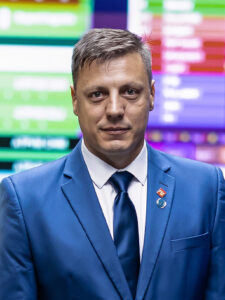
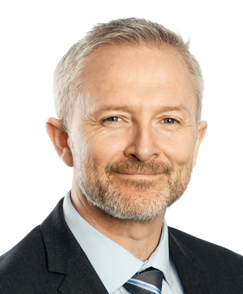
Freddie McBride is EENA’s director for digital communications policy and regulation, joining in January 2021. Prior to his role at EENA, he was the European Communications Office’s deputy director and expert in numbering and networks, joining in November 2012 from the Commission for Communications Regulation, Ireland’s telecoms regulator. He is a business graduate with a MSc in Computing and Information Systems and a Professional Diploma in Regulatory Governance. He has over 25 years’ experience in the telecommunications industry.
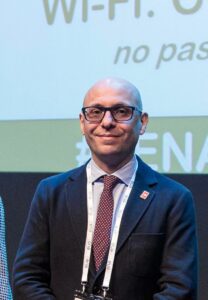
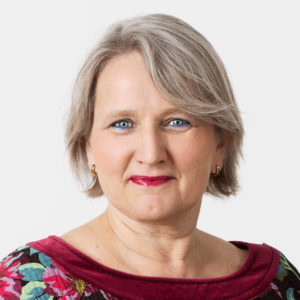
Grethe Thomas R.N., B.A., M.A., is Project Director at the Danish Foundation TrygFonden. She is responsible for implementation and development of the Danish AED Network, the School Project, the Heartrunner Project and the campaigns connected to this project www.hjertestarter.dk/english/you-can-save-lives . All the projects are focusing on reaching TrygFonden’s strategic goal – 85% bystander CPR in Denmark. Grethe is also in charge of TrygFonden’s collaboration with The Danish Cardiac Arrest Registry and the five Danish Emergency Medical Services. Grethe is a board member of The Danish Resuscitation Council www.genoplivning.dk with whom TrygFonden has a collaboration in resuscitation, implementation of Resuscitation Academy in Denmark and public stroke campaign.
Grethe has more than 40 years of experience in resuscitation and implementation of projects. As a Medical Anthropologist her publications are mainly in the field of applied cultural analysis.
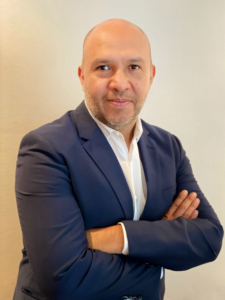

Responsible for IT-Management at the PSAP in Freiburg/Germany and longtime active experience by working in emergency services and as calltaker/dispatcher. The PSAP in Freiburg is providing the AML endpoint for Germany.

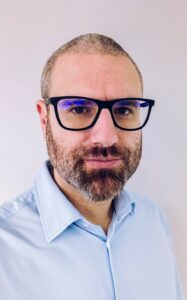
I have been in the software industry for 20 years now. Most of that time I was focused on emergency management solutions, leading critical projects in different countries, and working with multicultural and distributed teams.
In the last couple of years, I have led the Emergency Management Solutions area within Eviden (Big Data and Security, Mission Critical Systems) and I have run the GEMMA product organization, where I have been responsible for setting the strategy, running the operations, and supervising the creative process.

I work as Presales Manager for Public Safety within Eviden (an Atos Group company), and although I’m based in Spain, my role is global. I also represent Eviden in the EENA Tech & Ops Committee (currently as co-chair), and in my spare time I volunteer for VOST.

Jean-Louis Quéguiner, previously VP of Data, AI & Quantum Computing at Europe’s leading cloud provider, OVHcloud, founded Gladia to make cutting-edge AI tools and research accessible to any developer. Holds a Master’s Degree in Symbolic Al. Driven by a mission to simplify Al for developers, single-handedly built a chatbot to curate, classify and unify all Al applications in one store, enabling 13k+ model implementations to be classified in less than 4.5 years.
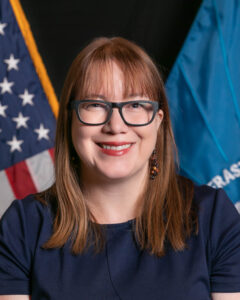


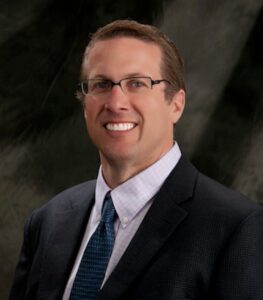
As a VP of Technology for Intrado Life and Safety, John Snapp provides strategic direction and coordination of technical activities within the carrier services group and between various departments within the company. Mr. Snapp was the Chief Architect behind the company’s Text to 9-1-1 and Locate Before Route initiatives. Mr. Snapp also leads technical teams investigating and developing more accurate and faster location technologies for 9-1-1 and technologies to deliver those locations to public safety.
Mr. Snapp has served the wireless industry since 1991 and holds 21 patents. He has directed technical groups for various wireless carriers in both engineering and operational roles. He has worked closely with PSAPs, Carriers, Local, State and Federal agencies with the goal of improving 9-1-1 for all.


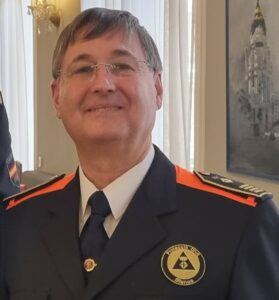
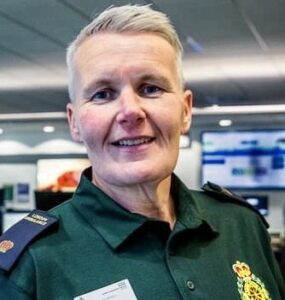
I have 23 years of experience at the London Ambulance Service, working in our 999 Control Room and EOC Training. My current role has a portfolio of Dispatching of Resources, Events and Incidents pan London and the leadership and development of colleagues working in our 999 Centre.
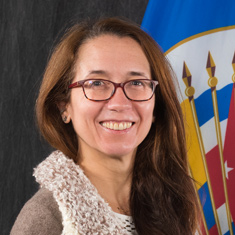

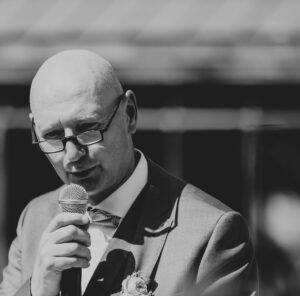
Koen Muysewinkel has a multi-year experience in the telecom industry. Before joining Proximus, the main telecom operator in Belgium , I was active at the vendor side, working for Siemens and later Nokia Siemens Networks on the mobile core networks. With Proximus, I took position essentially as an architect in the communication and collaboration domain , first as an enterprise architect, having a helicopter view on the PXS architecture. Last years , I joined the service platform domain for architecture activities. I’m helping the business in finding the cost effective architecture taking into account the long term strategy. My motto is “to live to learn” and I like to work in team to achieve a certain goal. In private life, I’m married with Sandra and father of two kids, young adults in the meantime and interested in sports, both active and passive, e.g. looking forward to go to the Olympics this summer as a spectator.

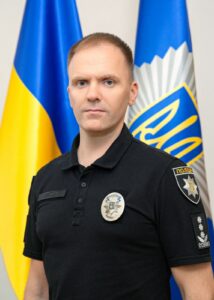
Year of birth – 1979
Current position – Chief Digital Transformation Officer of the MIA of Ukraine since February 2023, Deputy Minister
PhD (2010)
Worked at the National Police of Ukraine since August 1996
Colonel of police
FBINA graduate (2011)
Hobby – Triathlon (IronMan 2018)


I have been working for the Special Telecommunications Service (at the 112 Romania Unit) for almost 15 years. I am a former 112 call-taker and over the years I participated in many exciting projects aiming to improve the quality of the 112 Emergency Service. I am currently coordinating the 112 Development Policies Office.

Responsible for the international business development for the Emergency Management division @ Beta 80 Group and Chairman of the Technical & Operations committee @ EENA.
I have a backgorund in Telecommunications engineering, with specialization on VoIP protocols and have been working for Public safety forces since 2005.
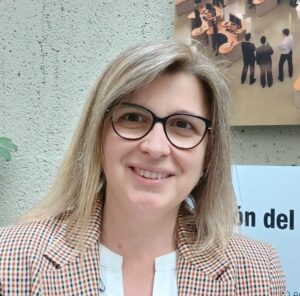
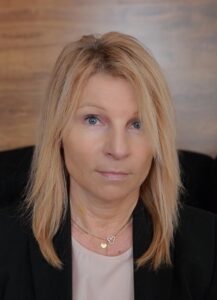
Małgorzata Pawłowicz takes the position of the Government Industry Expert in European Enterprise Government & Public Utility Development Department. She is responsible for driving digital transformation initiatives in Government sector, helping governments, public safety services, cities and municipalities to meet rising public safety challenges.
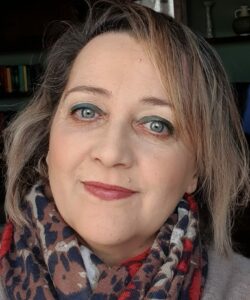
Over 30 years’ experience in Telecom business, 13 years’ experience in international Roaming.
As QoS manager In Hutchison Group, support in showing QoS potential as value added service in roaming negotiation.
Starting 2023, engaged within GSMA as chair of working groups on “QoS Measurement 5G Guidelines” and “Mission Critical Service in Roaming – Implementation proposal”.
Awarded at ROCCO100 “Top 10 Most Influential People in Roaming and Interconnect 2022”. Implemented a new solution to measure QoS that has been Awarded the third place at as innovation solution at Genesis Rocco Event 2021.
Judge at the “Antonio Meucci Global Telco Awards 2023″.
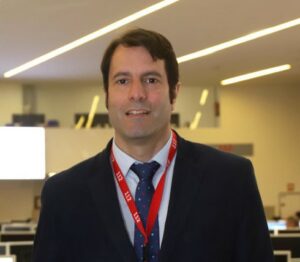


Margherita is an associate sales executive in the Emergency Crisis Management sector of Beta 80 Group. She is responsible for sales activities and the development of commercial strategies for Centre-South Italy.
Margherita manages relations with the Public Administrations and the several stakeholders involved in project development for the creation of emergency operations centres for both 112 and Emergency Medical Services (EMS), and also works on the development of 116117 solutions for territorial assistance.
She has a Master’s degree in International Strategic Marketing at the HEC Management School in Liège, and prior to this she obtained a degree in International Business & Entrepreneurship at the University of Pavia in Italy. Furthermore, she has had study experiences in Spain and United Kingdom.

Martin Welp is the program manager for the nora emergency app system at bevuta IT. He’s into all the small technical details of nora as well as the overall progress of accessibility in the field of emergency communications.
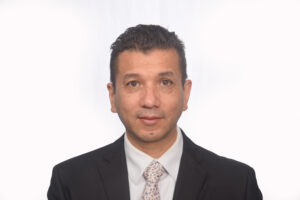
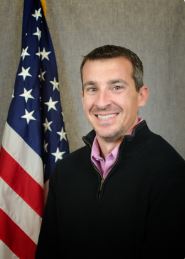
Matthew Hibler currently serves as the 9-1-1 Technology Manager for the Charleston County Consolidated Emergency Communications Center. He received a B.S. in Geography from East Carolina University. He has been active in the area of GIS and Database Management for over 20 years.

– At Bosch since 1979
– Development responsibility of integrated circuits and hybrids for
ABS and ESP Germany, Japan, USA
– Director of engineering and manufacturing ABS in Australia
– Vice president Competence Center Sensors for ABS and ESP
– Vice president product area non-automotive sensors at Bosch
Engineering GmbH from 2008 to 2012
– Lead function advanced motorcycle systems
– Innovation award motorcycle stability control lean angle sensor
– Contact for PTW to EU-Commission, ACEM, CLEPA, FEMA
– Cluster leader I_HeERO eCall for power two-wheeler
– VP product manager PTW sensors – World
– VP engineering Two-Wheeler systems – Europe
– Bosch Management Support – Senior Expert
– Cluster lead sAFE project eCall for power two-wheeler
– Cofounder of private entity lumenum®
– Representative for Bosch PTW at CLEPA, UNECE, C2C, 5GAA
– Delegate in Standardization Organization DIN, CEN, ETSI, ISO
– Convenor CEN TC278/WG15 eSafety
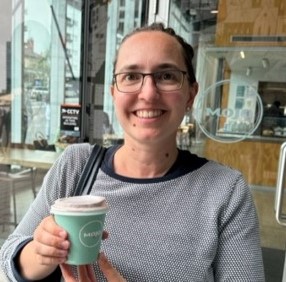
Melanie Reuter-Oppermann is an Assistant Professor for Operations Research in Healthcare at the University of Twente. In 2017, she received her PhD in Operations Research (OR) from the Karlsruhe Institute of Technology on the analysis and optimisation of Emergency Medical Services systems. She is a joint coordinator of the European Working Group on Operational Research Applied to Health Services (ORAHS) and active in various research and practice organisations. In her research, she applies Information Systems and OR methods to support decision making in healthcare with a special focus on emergency services and logistics.

Menno Bot, a Solution Architect at Everbridge in the Netherlands, contributes to the design and architecture of various public safety products. His passion for innovation drives him to contribute significantly to the field. Menno holds a Bachelor’s degree in Computer Science from the Amsterdam University of Applied Sciences and boasts over 20 years of experience in Telecommunications and IT across various countries. Previously, he has worked with companies such as Comptel, Nokia, and Group 2000, and he has been involved in the development of several patents.
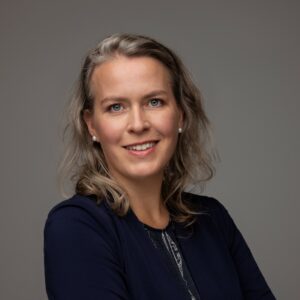
With a MSc in Biomedical Engineering and a background in Hearing Healthcare, my dedication to enabling better communication in challenging situations is founded on a deep understanding of the human auditory system and technologies to enhance speech. I cofounded Augmented Hearing with the ambition to revolutionise speech enhancement with AI.
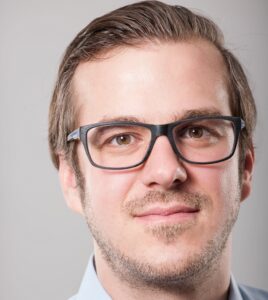
Michael Proestler is Founder and CEO of GridGears. GridGears provides multiple products and solutions in the public safety sector, while driving and contributing to relevant standards to enable better, more integrated and more efficient mission critical services.
Michael has more than 10 years of experience in Public Safety. Starting out as a software
engineer, designing and implementing mission critical systems for public safety, he later
provided his extensive technical knowledge as a consultant and founded GridGears in 2017.
As CEO of GridGears, Michael Proestler drives the company’s vision of standard compliant, highly efficient and interconnected mission critical services. He has served as technical expert in the NG112 Plugtests, an interoperability event organized by ETSI and developed conformance test specifications for NG112 components as part of ETSI’s STF 549.
Michael graduated from Vienna University of Technology in 2008 with a master’s degree in
Computer Science. During his last year at the university he started working in the Public Safety sector, where the challenging and meaningful characteristics of that business never let him go.

Dr. Michelle Lilly is a licensed clinical psychologist and professor of clinical psychology at Northern Illinois University (NIU). Early in her career at NIU, she became involved in research with 9-1-1 telecommunicators and has continued to focus on this understudied population. Dr. Lilly delivers training across the country on the topics of PTSD, suicide risk, stress management, and resilience for first responders and corporate audiences. She is also the owner of Lilly Counseling and Consultation, which is an organization that provides evidence-based intervention for PTSD, depression, and anxiety for first responders and families, as well as organizational assessment and consultation.
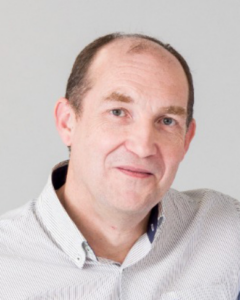
With the base of Telecommunication Engineer education, I’ve been for 25 years managing the use of ITC to emergency management and public safety in the region of Valencia, including the 112 regional service. Expert in applied tecnhologies to emergency management, and focused in supporting coordination among different agencies, such as police , fire and rescue organistations, or EMS.
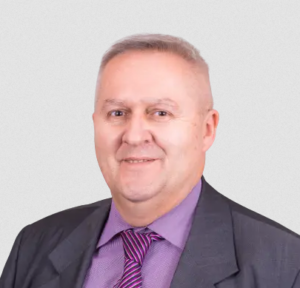
Mladen is the Vice-President of EENA as well as the Chairman of the Board and Director of TCCA (The critical Communications Association). He worked for the Serbian Ministry of the Interior from 2003 to 2012 and as Head of Telecommunications Directorate, he was responsible for all telecommunication systems of the Serbian police and fire brigades, including the emergency call centres. Mladen spent several years as an expert for Geneva based DCAF (Democratic Control of Armed Forces) and as such, he founded and chaired the Western Balkans Telecommunications Committee for improvement of Cross-border cooperation.
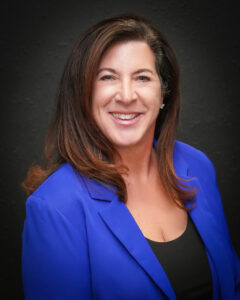
Monica Million is the founder and CEO of Million Consulting Services. Monica’s experience and commitment to service spans 24 years, beginning with her role as a 9-1-1 public safety telecommunicator. She worked her way up to managing a regional 9-1-1 center, served as the first civilian deputy chief of services for her municipal police department. Monica concluded her government service as the executive director of the Colorado 9-1-1 Resource Center, serving eighty-six 9-1-1 centers across the state.
Monica was most recently the 9-1-1 subject matter expert for the Amazon Web Services (AWS) Justice and Public Safety Team, where she was instrumental in deploying solutions in PSAPs to help mitigate staffing shortages, analyze dispatcher mental wellness, and ultimately save lives.
Monica is a past president of the National Emergency Number Association (NENA) and a NENA Hall of Fame Award recipient. In her time with NENA, Monica was instrumental in establishing the Collaborative Coalition for International Public Safety. She is also the co-founder and co-chair for the Women in 9-1-1 Alliance and for the Collaborative Coalition for International Public Safety.
Monica serves on the Board of Advisors for several organizations: Valor Vacations of Colorado, Source One, and the Women in 9-1-1 Alliance. In her spare time, Monica speaks at state, regional, national, and international events to advance 9-1-1 and emergency number services worldwide.
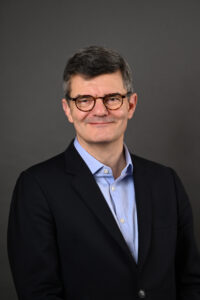
Nick sets the strategic direction for Hexagon’s activity in the Public Safety space in EMEA. Nick has more than 35 years experience implementing systems and maintaining relationships in the control room both in Europe and in the Asia-Pacific region.
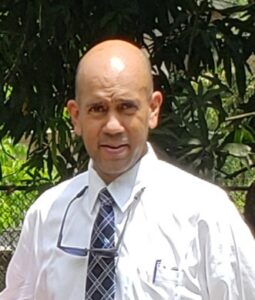

Risk Management Professional with emphasis on prevention, safety, security, preparedness and response to emergencies and disasters, with more than 25 years of experience. Which include: Health and Environmental Safety in rescue operations, search and recovery, planning for emergency preparedness and response, inter-institutional coordination, risk management consulting in the preparation of National Emergency and Disaster Response Plans, Prevention Manuals of Risks in Areas of Limited Access. Reviewing and update of pre-hospital care protocols, as well as reception, call processing and dispatch of resources. Advice on Wilderness Safety in Hiking and Kayaks, Professor at the Specialized University of the Americas for the career of Technicians and Graduates in Medical Emergencies and Disasters.
Senior Researcher at Biomedical Data Science Lab.
Bachelor Degree in Biomedical Engineering.
Master of Science in Statistical-computational processing of information.
PhD in Machine Learning applied to out-of-hospital medical emergencies, especially focused on Deep Learning, Continual Learning, Multimodal Learning and Multitask Learning.
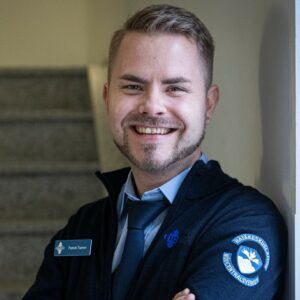
I’m a senior operator currently working as a communications specialist. I entered the field in 2019, when the agency was entering a transition period in applying new technologies. I’m also a therapist with a strong interest for cognitive ergonomics, which has helped me look at the changes through a solution focused perspective. My role as a trustee has also given me a strong connection with the operators at the agency.

Paul Bremner is a Principal Analyst in the critical communications group at Omdia. He is the lead analyst for the Command and Control Rooms Intelligence Service.
Paul originally joined the video surveillance team in Omdia, formerly IHS Markit, in 2012, working closely with the security system integration community. He has written reports on a diverse range of topics, such as security end-user concerns across a range of different vertical markets, the security system integration market, and the emerging safe cities market. Paul moved into the public safety and critical communications team in 2019. He holds a bachelor’s degree in physics from the University of Exeter in South West England, the UK. Paul has spoken at many conferences and company events in the US, Europe, and Asia.
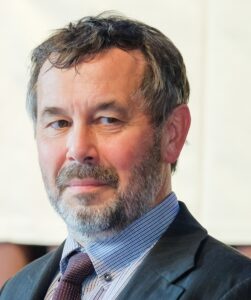
Philippe Quevauviller holds two PhDs (oceanography and environmental chemistry) and a HDR obtained from the universities of Bordeaux and Pau (France). He has joined the European Commission in 1989 and pursued a career in research and EU policies. Since 2013, he is in charge of research programming in the area of Disaster Resilient Societies at the Secure Societies Horizon Europe programme. He has also followed up an academic career as Associate Professor and as a scientific writer and editor.
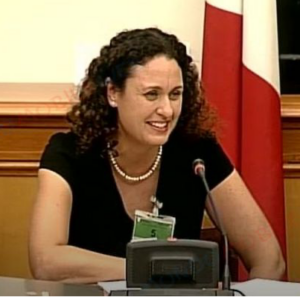
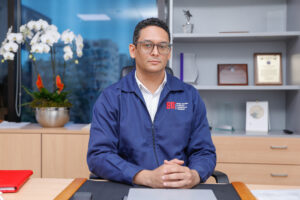

As Colonel Pilot Randolfo Rijo Gómez, ERD, I am honored to be recognized as a distinguished Dominican leader with a robust background in law and extensive experience across both military and civilian spheres. Born on February 6, 1976, in Santo Domingo, I proudly serve as the Chief Executive Officer of the National Emergency Response and Security System, 911, and as the Interim Chief Executive Officer of the National Institute of Transit and Land Transport (INTRANT).
My role as Chief Executive Officer of the National Emergency Response and Security System (911) in the Dominican Republic is to lead and supervise all operations and activities related to the efficient functioning of the emergency response system, ensuring efficiency, coordination, and effectiveness of emergency response throughout the country.
I graduated with honors Cum Laude from the National University Pedro Henriquez Ureña (UNPHU), with few contributions to the academic field as a teacher and advisor in Human Rights and International Humanitarian Law. In addition, I also completed the Capacity Development Process for Emergency Rescue Response course, hosted by KOICA in Korea in 2023, and had served as a speaker on security matters in various forums in cooperation with international organizations, including the OAS and the United States government.


With over two decades of dedicated service to Notruf Niederösterreich, Ronnie Riedl has traversed through various positions within the organization before assuming his current role as the Head of Operations. Ronnie’s journey in the realm of emergency services began prior to his tenure at Notruf Niederösterreich, where he garnered valuable experience working in the ambulance service.
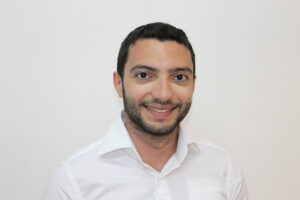
Senior Manager with over 20 years of experience in the technology industry. Engineer at heart, dad of 2, passionate about making Android the safest and most helpful platform in the world.
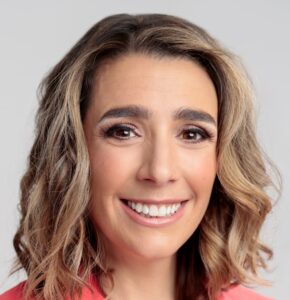
Sara Weston, PMP, ENP is the founder and executive director of 911der Women, Inc. (pronounced 9-1-wonder women), a nonprofit corporation with a mission to empower and provide tools for women in public safety. She is the CEO of Sara Weston Consulting, LLC and has been a consultant for NG911 systems for 20 years. She’s worked across America bringing new technologies into 911 centers. Sara holds a Bachelor’s of Science in Information Sciences and Technology from Penn State University and is a certified Project Management Professional (PMP) and holds the Emergency Number Professional certification through NENA.
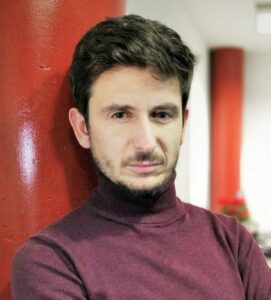
Serafín Doblado studied Telecommunications Engineering at the University of Extremadura.
He developed his professional career as an Operations Engineer in IT management centers for “INDRA”, “Servicio Extremeño de Salud” and “Caja de Badajoz”.
In the last 10 years, Serafin has participated and led the digital transformation of the EMERGENCY services in Extremadura. He is the Engineer responsible for the CAUE 1.1.2 Technology platform in Extremadura. He has participated as a speaker in different Forums on Security and Emergencies with civilians and military, emphasizing the need for standardization of the Radio model in the management of large Emergencies.
His latest project is the design of pilot tests to evaluate the impact of 5G SLICE in EMERGENCY and MISSION CRITICAL SERVICES.
For Serafín Doblado, continuous learning is a constant. He is currently studying for a Master’s degree in Cybersecurity, and wants to focus his TFM on the PROTECTION OF CRITICAL INFRASTRUCTURES and OT ENVIRONMENTS.
His hobbies are Applied Electronics (Arduino Projects), scientific and literary divulgation, reading, theater and a glass of wine from “Ribera del Guadiana.
For Serafín Doblado, continuous learning is a constant. He is currently studying for a Master’s degree in Cybersecurity, and wants to focus his TFM on the PROTECTION OF CRITICAL INFRASTRUCTURES and OT ENVIRONMENTS.
His hobbies are Applied Electronics (Arduino Projects), scientific and literary divulgation, reading, theater and a glass of wine from “rivera del guadiana.
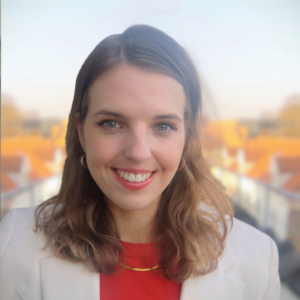
Solange van der Kolff is a software engineer at Everbridge in the Netherlands since April 2022. Her primary focus lies in developing the Element Manager for monitoring and reporting of Everbridge Public Warning products. Additionally, she has been actively involved in advancing the Everbridge Public Warning chatbot, a CAP project, which was part of the ENGAGE EU research initiative.
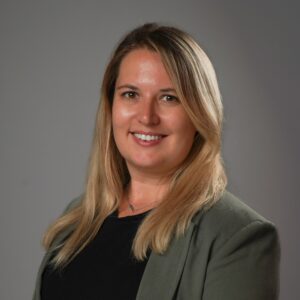
Sophia is a multicultural individual with a passion for emergency management and healthcare. After moving to Beijing, China as a teenager, she then moved to Toronto, Canada where she completed her Bachelor’s degree in Disaster and Emergency Management. Upon returning to her home country, Austria, she continued her education by earning a Master of Science in Emergency Healthcare Management. She began her career at Notruf Niederösterreich as a Calltaker in 2015 where she quickly rose through the ranks to become a dispatcher and quality assurance team member before becoming part of the division Chatservice. In this role she is responsible for overseeing the Chatbot of Notruf Niederösterreich and Apps ensuring that other communication channels offer new possibilities of getting in touch with the ECC. She is committed to utilizing her skills and experience to make a positive impact in the emergency management and healthcare industry.
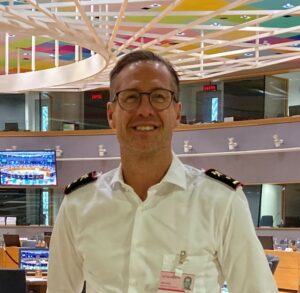
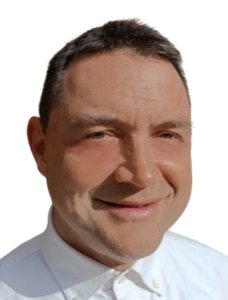
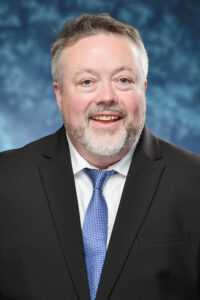
Stuart Walsh is a consultative technical sales leader with over 25 years of experience helping customers deliver solutions for success. As a leader in the solutions engineering division at SS8 Networks, Stuart is passionate about introducing next generation solutions and services to network operators and intelligence agencies and driving business growth. Stuart also has a depth experience in voice and data applications for both Enterprise and Service Provider customers.
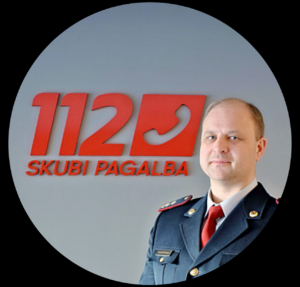
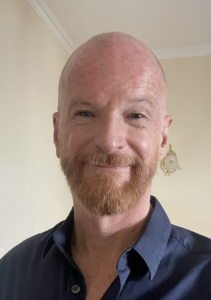
I am one of the founders of nWise. I have extended experience in accessible communication and deployment of Real-Time Text (RTT) in different environments. Since 2001 I have worked with delivery and integration of communication solutions that enable access to telecommunication for people who are Deaf, DeafBlind and Hard of Hearing (D, DB, HH). I work actively in NENA’s Assibility Committee and I am co-chair at Communication Modalities. I am also Vice-Chair of the European Emergency Number Association (EENA) Tech and OPS Committee, where I work with accessibility issues.
Since in 2005, we work with the implementation and deployment of Real-time Text (RTT) in Telecom Relay Services, and with connecting RTT calls to Emergency Services. We have implemented RTT into Total Conversation, which combines three different media in one session (voice, video, RTT).
I work closely with service providers, solution developers, system integrators and telecom operators, while interacting with regulatory authorities, user organizations, governmental authorities, and other stakeholders. My goal is to make sure that meaningful accessibility to emergency services is available for all.
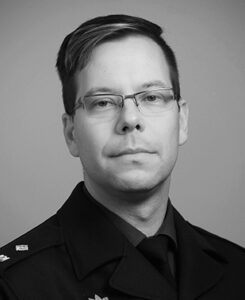
Education:
ERC operator diploma 2001
Vocational teacher 2015
Community Educator (community developer), Bachelor of Humanities 2022
Work history:
ERC operator 2002–2006
ERC shift manager 2006-2012
Instructor 2012-
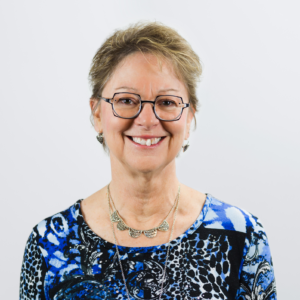
As a life long advocate for people with disabilities, I have served NENA in a variety of roles to include Regional Director, Chair of the Accessibility Committee and Chair of the International Committee. My experience also includes serving on various committees at the Federal Communications Commission (FCC) and working with the Dept. of Justice as a subject matter expert on 9-1-1 and accessibilities issues. Currently, I am Co-Chair of the Emergency Notifications for People with Disabilities workgroup, and Co-Chair of the Real-Time Text (RTT) Working Group where we established the NENA INF 042.1-2021 white paper to assist agencies with implementation of RTT.
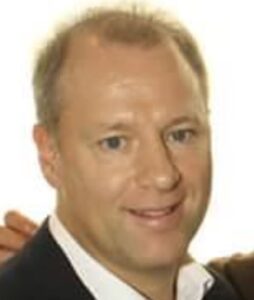
Tony works on Apple’s Safety & Location team, based in Ireland. Tony previously worked as Deputy Executive Director with EENA and had senior management roles with PayPal and Commission for Communications Regulation (ComReg) in Ireland.

Managing Call Handling sales for Comtech, having worked through the evolution of emergency call solutions for nearly 40 years for a variety or organizations. A member of both the Association of Public-Safety Communications Officials (APCO) and the National Emergency Number Association (NENA).
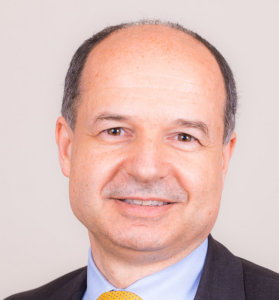

As a policy manager, Xhoana works closely with ETNO Member companies to drive forward the advocacy for the European telecommunication operators. Specifically, she is responsible for several policy areas: sustainability, consumer, platforms, content and spectrum.
Xhoana joined ETNO in September 2020 and gained a solid experience on a broad range of telecom policy files from digital infrastructure to data and artificial intelligence.
Before joining ETNO, Xhoana worked at the French Prime Minister’s General Secretariat for European Affairs (SGAE), working on foreign affairs and the think tank VoteWatch Europe, covering the work of the European Parliament.
She holds degrees in European Studies and political science from the College of Europe in Bruges and Sciences Po Grenoble. She specialised in European digital policies. Xhoana is a French national and speaks Albanian and English.
Site editor: EENA asbl
Director of Publication: Dr Demetrios Pyrros